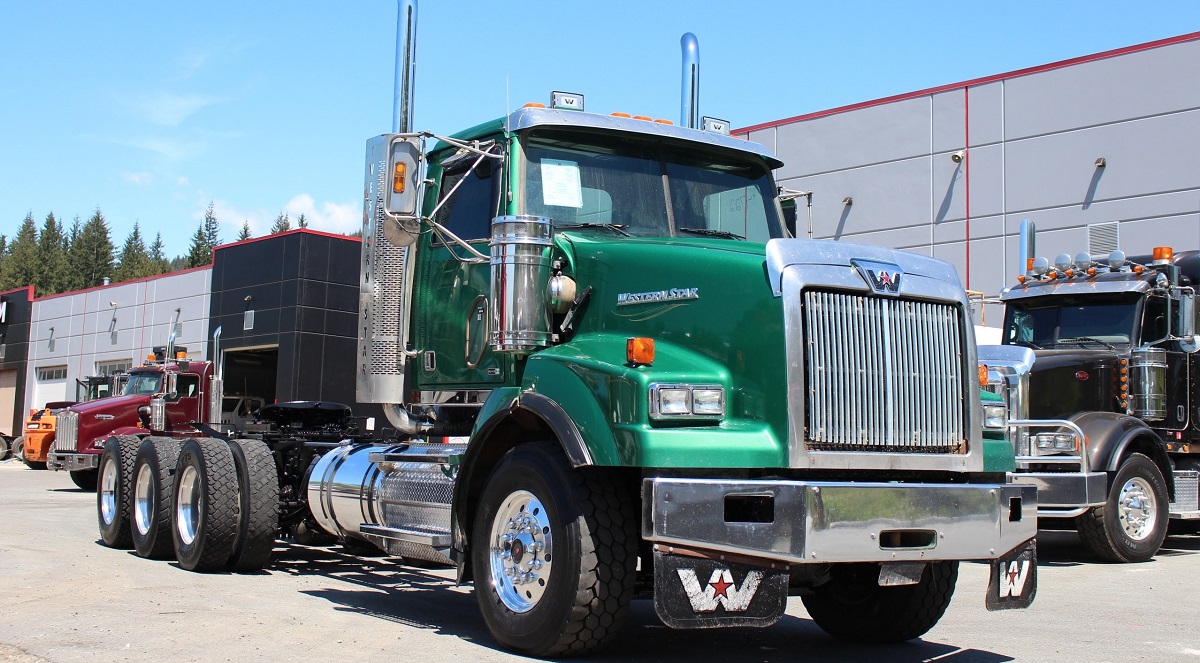
SAN FRANCISCO - Now that Uber has thoroughly disrupted the taxi industry, changing transportation as we know it, the ride-hailing startup has its eyes on a something much bigger - massive, 18-wheeler semi trucks.
The San Francisco-based company on Thursday launched Uber Freight, a new standalone app that allows truck drivers and trucking companies to search for and book trips with the same ease that commuters, bar hoppers and weekend travelers have been booking Uber cars for years. By matching truckers directly with shipments awaiting delivery, Uber aims to eliminate the hassle of the traditional system, where drivers negotiate shipments over the phone with third-party brokers.
"We truly believe we can make a difference in our drivers' lives," said Uber Freight product manager Eric Berdinis.
Uber Freight launches as Uber is steamrolling its way into multiple areas of the transportation industry, seeking to diversify beyond its signature ride-hailing app. In March of last year the startup launched meal delivery service UberEats - Uber's first new standalone app - and followed up with all-purpose delivery service UberRush last fall. Uber also is making a big push into the self-driving car industry - it acquired self-driving trucking startup Otto last year - and is planning to demo its first flying car by 2020.
"If you think about what Uber's mission is, it's to make transportation as reliable as running water. That can mean transportation of people or (goods)," Berdinis said. "Uber Freight is really an extension of that transition from people to goods, but at a much bigger scale."
Uber is entering a market that is already competitive. Startups like Convoy and Doft offer similar services, and many traditional brokers who have been booking truck shipments for years now have online platforms. Last year Amazon reportedly was working on an app that matches truck drivers with loads.
Berdinis says Uber Freight is the only one that will put truck drivers first. The service promises to pay truckers for their deliveries within seven days, with no fees, and to show them price quotes before they book. Under the trucking industry's current model, drivers often have to wait 30 days or longer for a paycheck, according to the company.
Uber Freight will set truck drivers' rates depending on demand, the same way it implements surge pricing with its car service, Berdinis said. The company shipping the goods will pay Uber, and then Uber will pay the truck driver - the percentage Uber takes as its cut will vary depending on the level of demand. But Berdinis said it will be less than the roughly 15 percent traditional brokers usually take.
Bob Ramorino, president of RoadStar Trucking, a family owned business in Hayward, prefers to set up his deliveries through long-standing connections he has with the companies shipping products. Third-parties like Uber just siphon off part of the profit, he said. But he acknowledged Uber Freight could be useful for truckers who lease their own trucks and work as independent contractors.
"The upside is a company like Uber Freight or some of the other brokerages could potentially bring more business to a trucker," Ramorino said, "and the trucker has to determine if that's a net benefit or if it's squeezing profits."
And there's a danger that publicizing a shipment on the app could increase competition for that load, thereby driving down prices and cutting into the truckers' profits, he said.
Uber started work on its trucking app last year, launching the service in Texas before rolling it out on a large scale Thursday. The project has some heavyweight talent behind it - including Curtis Chambers, Uber's seventh employee and director of engineering for Uber Freight. And the Uber Freight team has grown to the point where Uber had to open a second office in Chicago, the site of the project's operations center, Berdinis said.
But trucking is a complicated business, Ramorino cautioned.
"I don't think it's as easy as it is when they moved into the taxi industry," Ramorino said. "There's a lot more things happening with moving freight than picking up a passenger that wants to go to the airport."
by Marisa Kendall
Source: The Mercury News